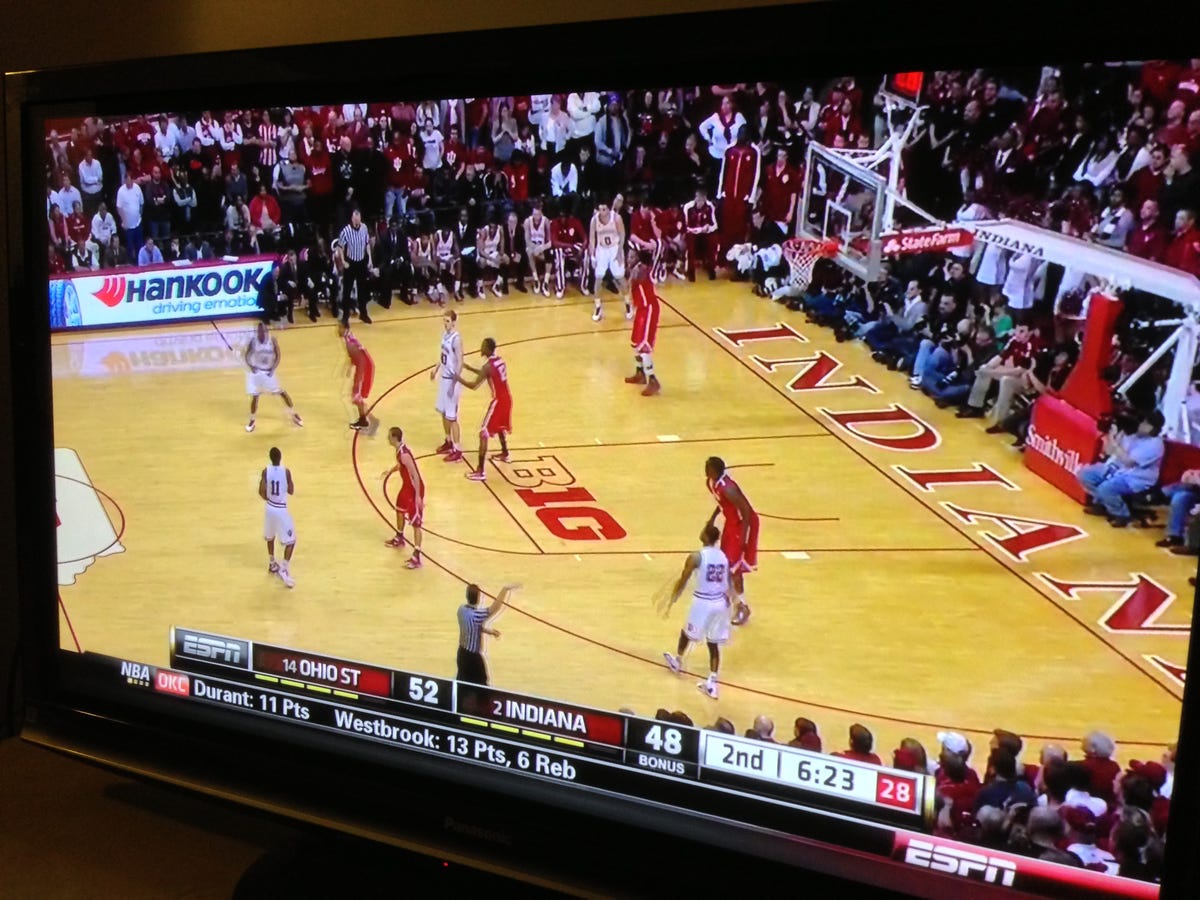Roku streaming boxes can now be used as cable boxes for Time Warner Cable subscribers.
The feature upgrade comes courtesy of the free TWC TV app, which went live in the Roku Channel Store earlier today. The app was first announced at CES in January.
Once installed, the app provides access to hundreds of live channels, including most major broadcast and cable networks. The only requirement is a valid Time Warner Cable username and password; that security feature verifies that you’re a current paying customer, and that you’re accessing the stream from within your own home via your Time Warner cable modem. (So no, don’t try sharing your password with friends and family.)


John P. Falcone/CNET
I tested the app earlier this evening and was largely impressed. Within 30 seconds of entering my user info, I was flipping between ESPN, CBS, and Fox Movie Channel. (Disclosure: CNET is owned by CBS.) As with all the streaming on Roku, it takes half a minute or so for the quality to adjust to your connection speed, but once it did video quality was largely on par with the best you’d see on Netflix or other streaming services (all of the channels were in HD).
Related stories
- The new $99 Roku 3: Overhauled interface, faster chip, and private listening mode (hands-on)
- Updated Aereo app adds improved live TV streaming to Roku
- Roku surpasses 700 channels, adds Roku Ready TV partners
While a college basketball game on ESPN looked a tad under 30 frames a second, “NCIS” looked largely indistinguishable from its cable equivalent. The same was true of “Zodiac” on Fox; even with David Fincher’s pitch-black cinematography, the image looked well defined, with great shadow detail. (To be clear: I’m comparing to my normal cable expectations, not a top-notch Blu-ray.) Overall, I watched for several hours with no apparent skipping, buffering, or lip-sync issues. I doubt most viewers would know they weren’t watching a “real” cable box.
Still, there were some disappointments when comparing the Roku version with the TWC TV app on iOS. There’s no traditional program guide; instead, the app shows thumbnails of the channel logos or the shows and movies that are currently live. (Ironically, these are often images of the DVD boxes.) It works, but it’s not particularly elegant. There also seems to be no closed captioning option on Roku. And — the biggest disappointment — there are no on-demand options on the Roku app, as there are on iOS. And don’t look for any rewind or pause here; this is strictly live TV.


John P. Falcone/CNET
Still, the benefits outweigh the drawbacks — the “cable box as app” model is definitely a step in the right direction. Since extra cable boxes cost a few bucks a month per box, a $50 Roku LT could pay for itself in about a year. While lower cable bills may sound like a bad deal for Time Warner, consider that this sort of DIY setup could, in theory, cut down on expensive in-house service calls (new box installations) and visits to the customer service office — especially in a future where such apps where more universally available on all smart TV products.
Meanwhile, unlike a regular cable box, the Roku box can be used to access on-demand content on Netflix, Amazon, Vudu, and the hundreds of other Roku channels when there’s nothing on. Also, I was able to watch the Roku TWC app and the iPhone TWC app simultaneously, so there does not appear to be an “only one viewer per account” restriction. And the TWC channel selection is far more robust than the stripped-down lineup found on Xfinity (Comcast) and Fios TV apps currently available on Xbox and some other smart TV platforms.
The TWC TV app is compatible with all current-generation Roku boxes — Roku LT, Roku HD, Roku XD, Roku 2 XS, Roku Streaming Stick, and the just-announced Roku 3. And, of course, it only works for Time Warner Cable customers.




